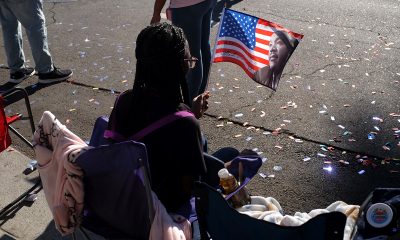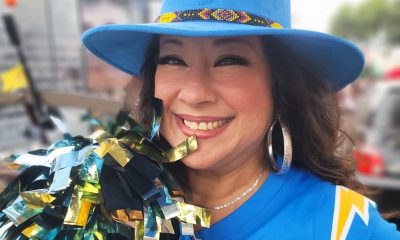Books
AOC — an ally for LGBTQ+ Latino community


Rep. Alexandria Ocasio-Cortez offers short, but powerful remarks while seconding Sen. Bernie Sanders’ nomination at the Democratic National Convention.
“What am I supposed to be? According to you – What am I supposed to be?”
In a book of essays on AOC-Alexandria Ocasio – Cortez which dropped last week, Editor Lynda Lopez reflects on a moment growing up in which she was stereotyped and put in a box which she connects with a similar moment revolving around AOC when the then 28-year old was running for Congress.
It’s something we as Gay Latinos also have had to overcome growing up even amongst our own traditional families. What am I supposed to be? Macho? We understand firsthand, stereotypical archetypes so when we see a Young Latina from The Bronx beat her 10-term incumbent opponent, Joe Crowley in 2018, to become the youngest woman in Congress, we take notice and we rally around her. An ally to no end and someone who built their platform on the idea that marginalized communities deserve better.
Gay men appreciate female beauty. Arguably it can be noted that the highest compliment a woman can get is from a Gay man. Combine Beauty with brains and amazing public speaking skills and you have gold. This is AOC.
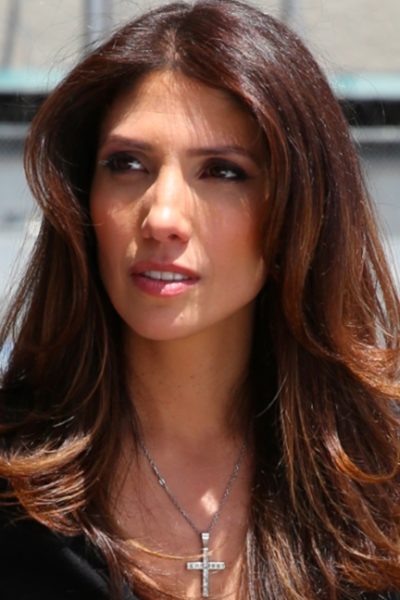
Author Lynda Lopez.
The red lipstick. AOC’s trademark and a symbol all its own for Gay Latinos. Was it our Mom rocking it while we were growing up or another Latina, Lynda Carter as Wonder Woman, who ignited our love for it and taught us that Latinas who chose to go bold with red lips were fearless?
When I was an undergrad at UC Berkeley in the 90’s, many Latinas on campus had a signature look. For some it varied – great style, full long hair, hoop earrings, boots in the winter. One staple never deviated – freshly applied red lipstick. It was a look. It was a sense of power and many times it could be viewed as a piece of armor. Another Latina back then also used it as her signature look as she was climbing the Latin music charts – Tejana, Selena Quintanilla. Gay Latinos revere Selena.
In her book introduction, Lopez (the younger sister of Jennifer, another Icon of the Gay community) gives a nod to other Latinas who have also applied that red lipstick in small bathroom mirrors as they prepare to leave their apartments to conquer the world.
It’s no secret that Gay men love our female allies and they love us right back. AOC showed us just how much when she joined the judge’s panel earlier this year of RuPaul’s Drag Race. Que…Que? Could a member of Congress actually guest judge on a show that has become a part of our DNA?
AOC made no secret of the fact that she is a huge fan of the show. While the Queens were in awe of the fact that she was there front and center for the Madonna themed episode, she in turn gave them that respect right back acknowledging she was on their turf and praised them for their fearlessness – bucket list, checked.
Our community relishes its ties to AOC. When we see her expressing how Rep. Yoho, called her a “F***ing Bitch” and then tried to give a half-ass apology after the fact, we not only feel the urge to rally around her, but we acknowledge our own mothers in this struggle. We think of our nieces or our daughters. We also thank people like Gabrielle Union and Janelle Monae for doing publicly what our community also does in a time like this – have AOC’s back.
Like AOC, we know firsthand what it’s like to demand respect from our peers. We want to see ourselves as leaders. For a community that is very influential we’ve yet to reach many heights. We are happy to enjoy this ride with one of our biggest allies and find it amusing knowing that she is garnering support from the likes of Cardi B. and Ava Duvernay, with the former encouraging AOC to run for President in 2024.
Certainly not out of the question. And we certainly want to see more of this Bronx born, Latina on the rise.
“AOC is a new force of change for America’s next phase as a democracy and the idea of our social fabric, values and identity as a country and global leader”, expressed HONOR PAC’s President, Mario Ceballos.
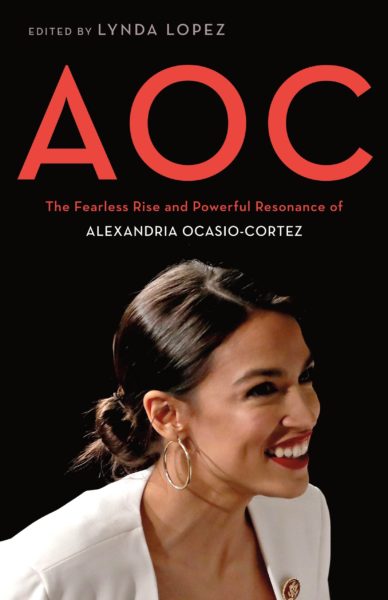 Originating in 2005, HONOR PAC quickly became an authority on Latinx LGBTQ+ political action and whose Board of Directors is comprised of professionals committed to giving the LGBTQ+ Latinx community a voice in government affairs.
Originating in 2005, HONOR PAC quickly became an authority on Latinx LGBTQ+ political action and whose Board of Directors is comprised of professionals committed to giving the LGBTQ+ Latinx community a voice in government affairs.
“The Latinx community, especially our young generations, embrace AOC’s vision because it is akin to our own idea of our culture’s collective strength, success, family and community.
I have no doubt that under an AOC vision, America will return to being a strong, respected nation but it will need, more than ever, to find its role in a new world order that is more diverse, inclusive, and complex given the geopolitical, economic and climate change disparities and issues impacting our, nation, global community and planet,” added Ceballos.
Ceballos is correct and the idea of inclusiveness across the board is the very fabric that AOC’s rise was conceived on as best exemplified in the popular Netflix documentary, Knock the House Down. It is here we learn the very core of AOC’s being. Beating the odds, advocating for the everyday people tired of feeling like the “other” and tired of being unheard – LGBTQ+ community amongst them.
At the end of the documentary after she defeats Crowley, she takes a stroll with her long-term boyfriend, Riley Roberts, just outside the nation’s capital. A good-looking white male jogger passes her by and screams, “I love you”. To which she simply responds, “Aww…thank you”. In my mind there is no question – that is yet another Gay man, proving her allure crosses all ethnicities within the LGBTQ+ community.
When it comes to AOC, our community, doesn’t need to wonder who “she is supposed to be”. The answer is simple and who she has always been – one of our biggest allies, fighting for our rights, amongst everyone else’s.
Pick up a copy of The Fearless Rise and Powerful Resonance of Alexandria Ocasio Cortez, now at your local bookstore or buy it here.
Books
Feminist fiction fans will love ‘Bog Queen’
A wonderful tale of druids, warriors, scheming kings, and a scientist
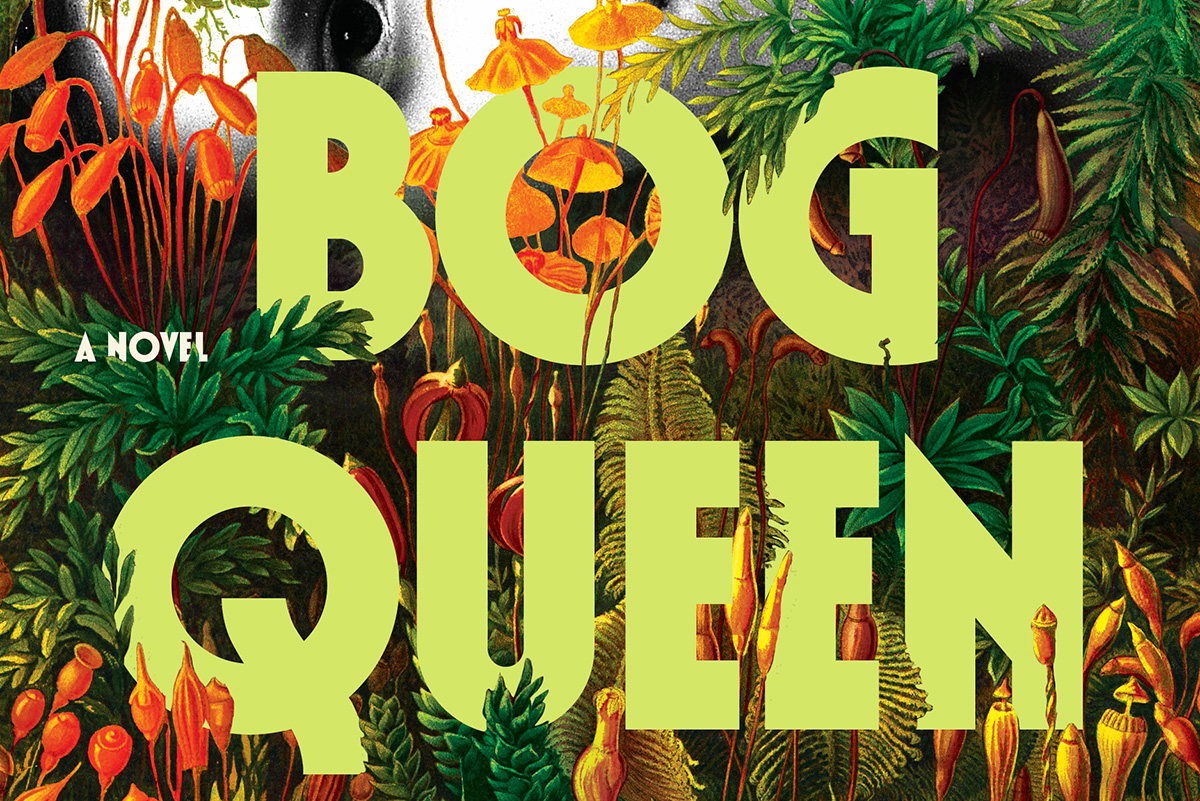
‘Bog Queen’
By Anna North
c.2025, Bloomsbury
$28.99/288 pages
Consider: lost and found.
The first one is miserable – whatever you need or want is gone, maybe for good. The second one can be joyful, a celebration of great relief and a reminder to look in the same spot next time you need that which you first lost. Loss hurts. But as in the new novel, “Bog Queen” by Anna North, discovery isn’t always without pain.

He’d always stuck to the story.
In 1961, or so he claimed, Isabel Navarro argued with her husband, as they had many times. At one point, she stalked out. Done. Gone, but there was always doubt – and now it seemed he’d been lying for decades: when peat cutters discovered the body of a young woman near his home in northwest England, Navarro finally admitted that he’d killed Isabel and dumped her corpse into a bog.
Officials prepared to charge him.
But again, that doubt. The body, as forensic anthropologist Agnes Lundstrom discovered rather quickly, was not that of Isabel. This bog woman had nearly healed wounds and her head showed old skull fractures. Her skin glowed yellow from decaying moss that her body had steeped in. No, the corpse in the bog was not from a half-century ago.
She was roughly 2,000 years old.
But who was the woman from the bog? Knowing more about her would’ve been a nice distraction for Agnes; she’d left America to move to England, left her father and a man she might have loved once, with the hope that her life could be different. She disliked solitude but she felt awkward around people, including the environmental activists, politicians, and others surrounding the discovery of the Iron Age corpse.
Was the woman beloved? Agnes could tell that she’d obviously been well cared-for, and relatively healthy despite the injuries she’d sustained. If there were any artifacts left in the bog, Agnes would have the answers she wanted. If only Isabel’s family, the activists, and authorities could come together and grant her more time.
Fortunately, that’s what you get inside “Bog Queen”: time, spanning from the Iron Age and the story of a young, inexperienced druid who’s hoping to forge ties with a southern kingdom; to 2018, the year in which the modern portion of this book is set.
Yes, you get both.
Yes, you’ll devour them.
Taking parts of a true story, author Anna North spins a wonderful tale of druids, vengeful warriors, scheming kings, and a scientist who’s as much of a genius as she is a nerd. The tale of the two women swings back and forth between chapters and eras, mixed with female strength and twenty-first century concerns. Even better, these perfectly mixed parts are occasionally joined by a third entity that adds a delicious note of darkness, as if whatever happens can be erased in a moment.
Nah, don’t even think about resisting.
If you’re a fan of feminist fiction, science, or novels featuring kings, druids, and Celtic history, don’t wait. “Bog Queen” is your book. Look. You’ll be glad you found it.
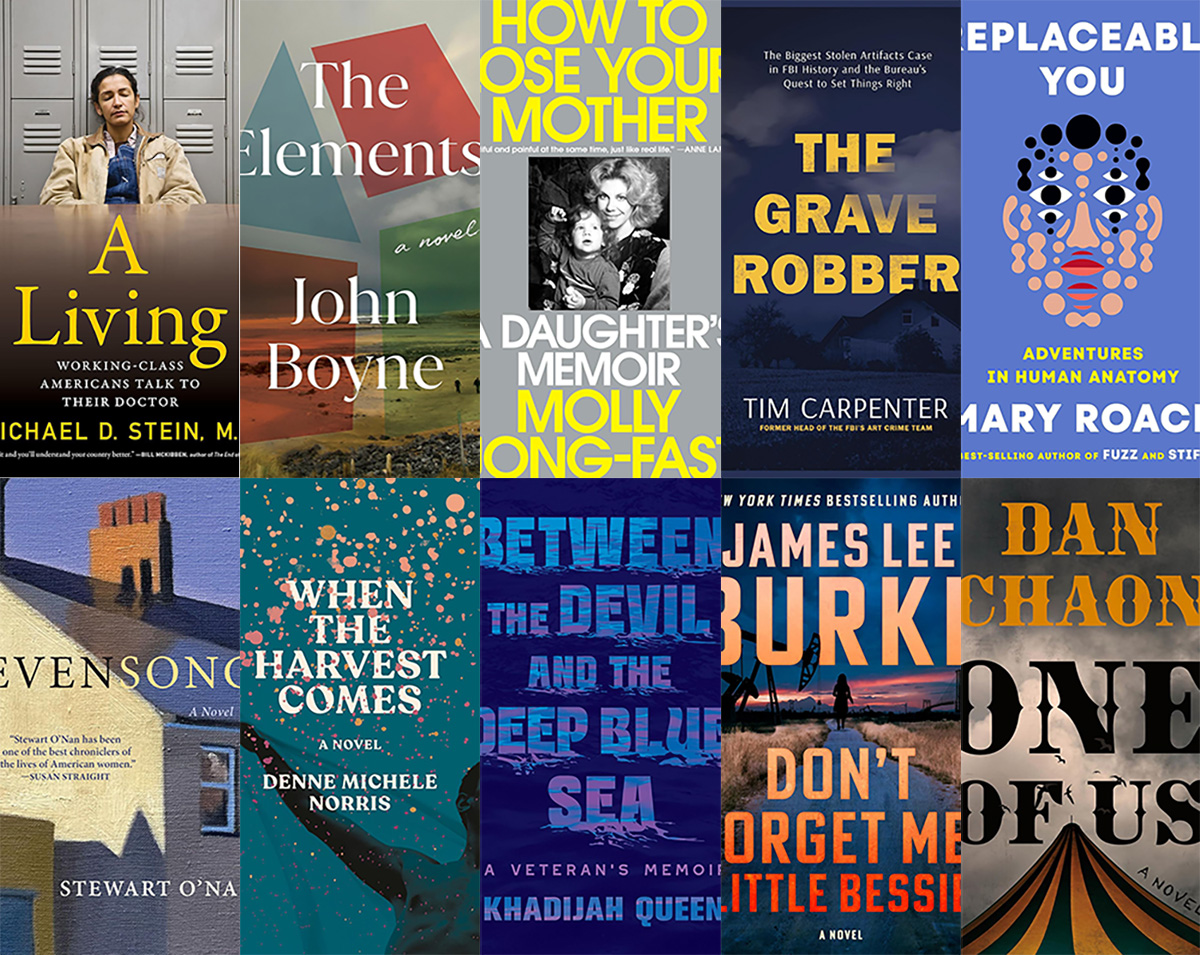
This past year, you’ve often had to make do.
Saving money here, resources there, being inventive and innovative. It’s a talent you’ve honed, but isn’t it time to have the best? Yep, so grab these Ten Best of 2025 books for your new year pleasures.
Nonfiction
Health care is on everyone’s mind now, and “A Living: Working-Class Americans Talk to Their Doctor” by Michael D. Stein, M.D. (Melville House, $26.99) lets you peek into health care from the point of view of a doctor who treats “front-line workers” and those who experience poverty and homelessness. It’s shocking, an eye-opening book, a skinny, quick-to-read one that needs to be read now.
If you’ve been doing eldercare or caring for any loved one, then “How to Lose Your Mother: A Daughter’s Memoir” by Molly Jong-Fast (Viking, $28) needs to be in your plans for the coming year. It’s a memoir, but also a biography of Jong-Fast’s mother, Erica Jong, and the story of love, illness, and living through the chaos of serious disease with humor and grace. You’ll like this book especially if you were a fan of the author’s late mother.
Another memoir you can’t miss this year is “Between the Devil and the Deep Blue Sea: A Veteran’s Memoir” by Khadijah Queen (Legacy Lit, $30.00). It’s the story of one woman’s determination to get out of poverty and get an education, and to keep her head above water while she goes below water by joining the U.S. Navy. This is a story that will keep you glued to your seat, all the way through.
Self-improvement is something you might think about tackling in the new year, and “Replaceable You: Adventures in Human Anatomy” by Mary Roach (W.W. Norton & Company, $28.99) is a lighthearted – yet real and informative – look at the things inside and outside your body that can be replaced or changed. New nose job? Transplant, new dental work? Learn how you can become the Bionic Person in real life, and laugh while you’re doing it.
The science lover inside you will want to read “The Grave Robber: The Biggest Stolen Artifacts Case in FBI History and the Bureau’s Quest to Set Things Right” by Tim Carpenter (Harper Horizon, $29.99). A history lover will also want it, as will anyone with a craving for true crime, memoir, FBI procedural books, and travel books. It’s the story of a man who spent his life stealing objects from graves around the world, and an FBI agent’s obsession with securing the objects and returning them. It’s a fascinating read, with just a little bit of gruesome thrown in for fun.
Fiction
Speaking of a little bit of scariness, “Don’t Forget Me, Little Bessie” by James Lee Burke (Atlantic Monthly Press, $28) is the story of a girl named Bessie and her involvement with a cloven-hooved being who dogs her all her life. Set in still-wild south Texas, it’s a little bit western, part paranormal, and completely full of enjoyment.
“Evensong” by Stewart O’Nan (Atlantic Monthly Press, $28) is a layered novel of women’s friendships as they age together and support one another. The characters are warm and funny, there are a few times when your heart will sit in your throat, and you won’t be sorry you read it. It’s just plain irresistible.
If you need a dark tale for what’s left of a dark winter season, then “One of Us” by Dan Chaon (Henry Holt, $28), it it. It’s the story of twins who become orphaned when their Mama dies, ending up with a man who owns a traveling freak show, and who promises to care for them. But they can’t ever forget that a nefarious con man is looking for them; those kids can talk to one another without saying a word, and he’s going to make lots of money off them. This is a sharp, clever novel that fans of the “circus” genre shouldn’t miss.
“When the Harvest Comes” by Denne Michele Norris (Random House, $28) is a wonderful romance, a boy-meets-boy with a little spice and a lot of strife. Davis loves Everett but as their wedding day draws near, doubts begin to creep in. There’s homophobia on both sides of their families, and no small amount of racism. Beware that there’s some light explicitness in this book, but if you love a good love story, you’ll love this.
Another layered tale you’ll enjoy is “The Elements” by John Boyne (Henry Holt, $29.99), a twisty bunch of short stories that connect in a series of arcs that begin on an island near Dublin. It’s about love, death, revenge, and horror, a little like The Twilight Zone, but without the paranormal. You won’t want to put down, so be warned.
If you need more ideas, head to your local library or bookstore and ask the staff there for their favorite reads of 2025. They’ll fill your book bag and your new year with goodness.
Season’s readings!
The Blade may receive commissions from qualifying purchases made via this post.
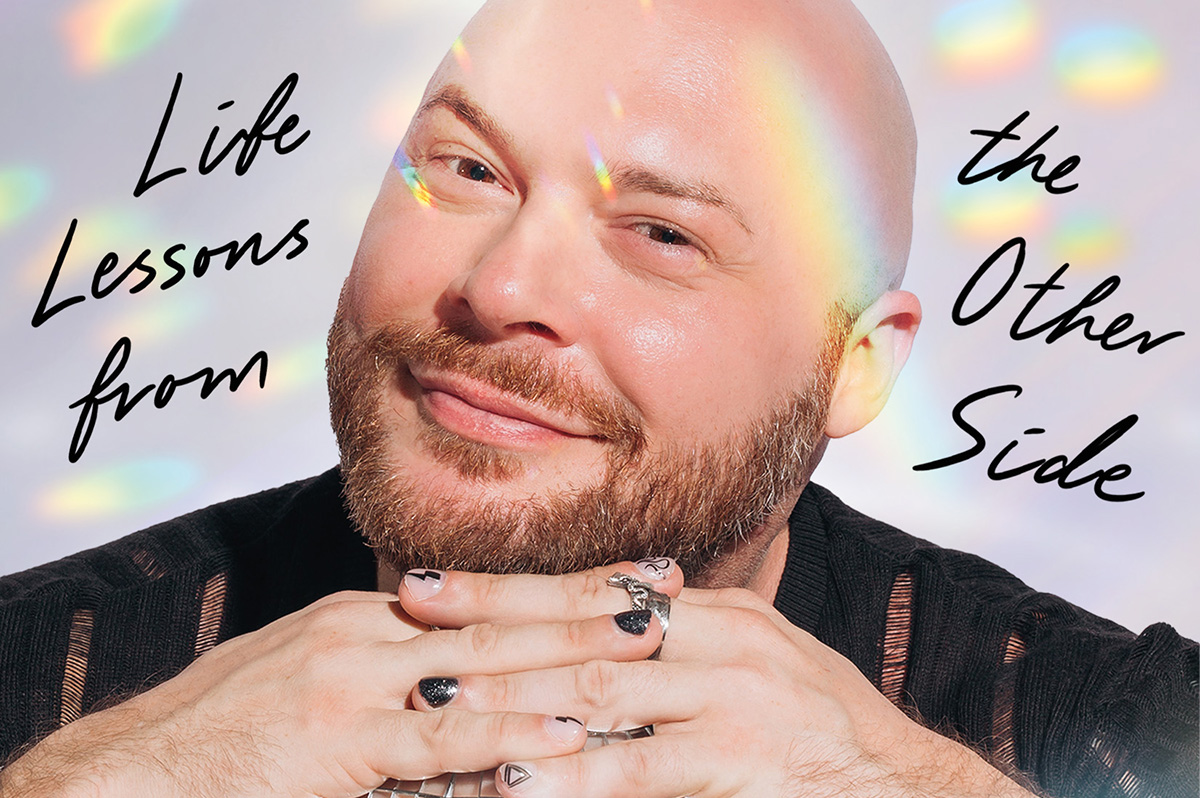
‘Are You There Spirit? It’s Me, Travis’
By Travis Holp
c.2025, Spiegel and Grau
$28/240 pages
Your dad sent you a penny the other day, minted in his birth year.
They say pennies from heaven are a sign of some sort, and that makes sense: You’ve been thinking about him a lot lately. Some might scoff, but the idea that a lost loved one is trying to tell you he’s OK is comforting. So read the new book “Are You There, Spirit? It’s Me, Travis” by Travis Holp, and keep your eyes open.

Ever since he was a young boy growing up just outside Dayton, Ohio, Travis Holp wanted to be a writer. He also wanted to say that he was gay but his conservative parents believed his gayness was some sort of phase. That, and bullying made him hide who he was.
He also had to hide his nascent ability to communicate with people who had died, through an entity he calls “Spirit.” Eventually, though it left him with psychological scars and a drinking problem he’s since overcome, Holp was finally able to talk about his gayness and reveal his otherworldly ability.
Getting some people to believe that he speaks to the dead is still a tall order. Spirit helps naysayers, as well as Holp himself.
Spirit, he says, isn’t a person or an essence; Spirit is love. Spirit is a conduit of healing and energy, speaking through Holp in symbolic messages, feelings, and through synchronistic events. For example, Holp says coincidences are not coincidental; they’re ways for loved ones to convey messages of healing and energy.
To tap into your own healing Spirit, Holp says to trust yourself when you think you’ve received a healing message. Ignore your ego, but listen to your inner voice. Remember that Spirit won’t work on any fixed timeline, and its only purpose is to exist.
And keep in mind that “anything is possible because you are an unlimited being.”
You’re going to want very much to like “Are You There, Spirit? It’s Me, Travis.” The cover photo of author Travis Holp will make you smile. Alas, what you’ll find in here is hard to read, not due to content but for lack of focus.
What’s inside this book is scattered and repetitious. Love, energy, healing, faith, and fear are words that are used often – so often, in fact, that many pages feel like they’ve been recycled, or like you’ve entered a time warp that moves you backward, page-wise. Yes, there are uplifting accounts of readings that Holp has done with clients here, and they’re exciting but there are too few of them. When you find them, you’ll love them. They may make you cry. They’re exactly what you need, if you grieve. Just not enough.
This isn’t a terrible book, but its audience might be narrow. It absolutely needs more stories, less sentiment; more tales, less transcendence and if that’s your aim, go elsewhere. But if your soul cries for comfort after loss, “Are You There, Spirit? It’s Me, Travis” might still make sense.
The Blade may receive commissions from qualifying purchases made via this post.
Books
‘Dogs of Venice’ looks at love lost and rediscovered
A solo holiday trip to Italy takes unexpected turn
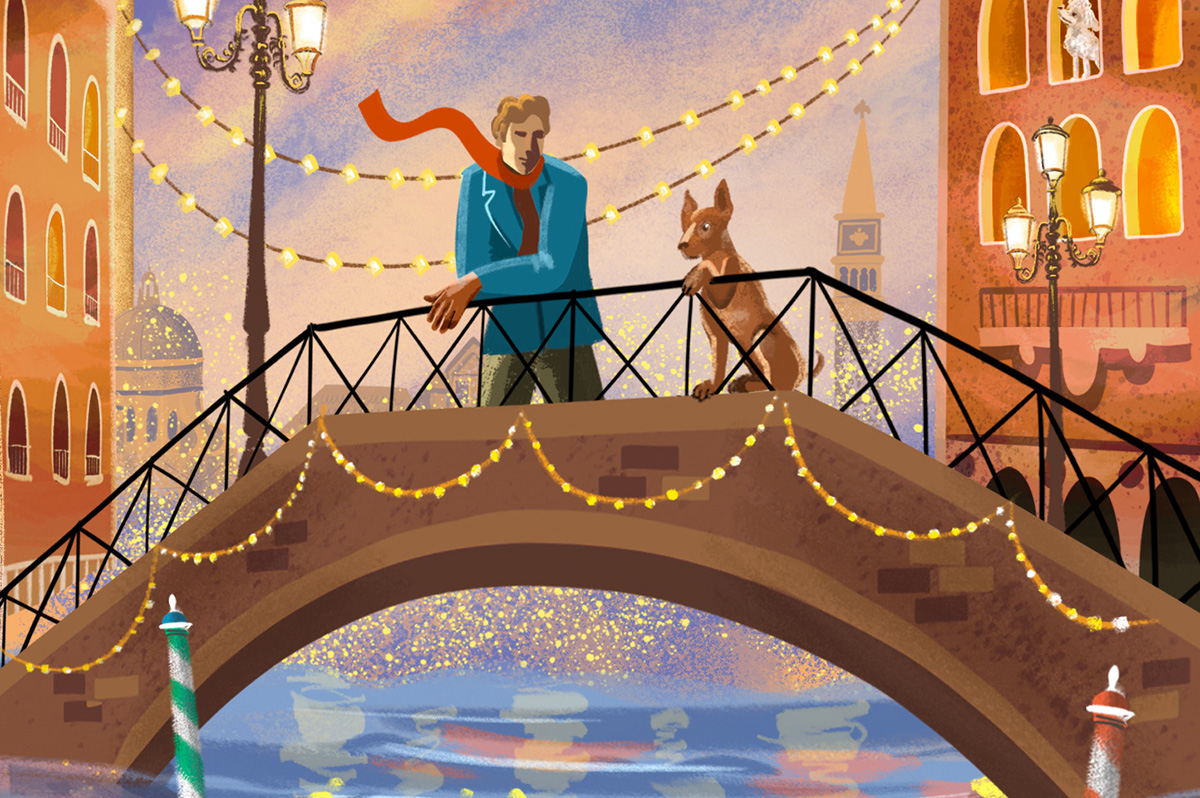
‘The Dogs of Venice’
By Steven Crowley
c.2025, G.P. Putnam & Sons
$20/65 pages
One person.
Two, 12, 20, you can still feel alone in a crowded room if it’s a place you don’t want to be. People say, though, that that’s no way to do the holidays; you’re supposed to Make Merry, even when your heart’s not in it. You’re supposed to feel happy, no matter what – even when, as in “The Dogs of Venice” by Steven Rowley, the Christmas tinsel seems tarnished.

Right up until the plane door closed, Paul held hope that Darren would decide to come on the vacation they’d planned for and saved for, for months.
Alas, Darren was a no-show, which was not really a surprise. Three weeks before the departure, he’d announced that their marriage wasn’t working for him anymore, and that he wanted a divorce. Paul had said he was going on the vacation anyhow. Why waste a perfectly good flight, or an already-booked B&B? He was going to Venice.
Darren just rolled his eyes.
Was that a metaphor for their entire marriage? Darren had always accused Paul of wanting too much. He indicated now that he felt stifled. Still, Darren’s unhappiness hit Paul broadside and so there was Paul, alone in a romantic Italian city, fighting with an espresso machine in a loft owned by someone who looked like a frozen-food spokeswoman.
He couldn’t speak or understand Italian very well. He didn’t know his way around, and he got lost often. But he felt anchored by a dog.
The dog – he liked to call it his dog – was a random stray, like so many others wandering around Venice unleashed, but this dog’s confidence and insouciant manner inspired Paul. If a dog could be like that, well, why couldn’t he?
He knew he wasn’t unlovable but solo holidays stunk and he hated his situation. Maybe the dog had a lesson to teach him: could you live a wonderful life without someone to watch out for, pet, and care for you?
Pick up “The Dogs of Venice,” and you might think to yourself that it won’t take long to read. At under 100 pages, you’d be right – which just gives you time to turn around and read it again. Because you’ll want to.
In the same way that you poke your tongue at a sore tooth, author Steven Rowley makes you want to remember what it’s like to be the victim of a dead romance. You can do it here safely because you simply know that Paul is too nice for it to last too long. No spoilers, though, except to say that this novel is about love – gone, resurrected, misdirected – and it unfolds in exactly the way you hope it will. All in a neat evening’s worth of reading. Perfect.
One thing to note: the Christmas setting is incidental and could just as well be any season, which means that this book is timely, no matter when you want it. So grab “The Dogs of Venice,” enjoy it twice with your book group, with your love, or read it alone.
The Blade may receive commissions from qualifying purchases made via this post.
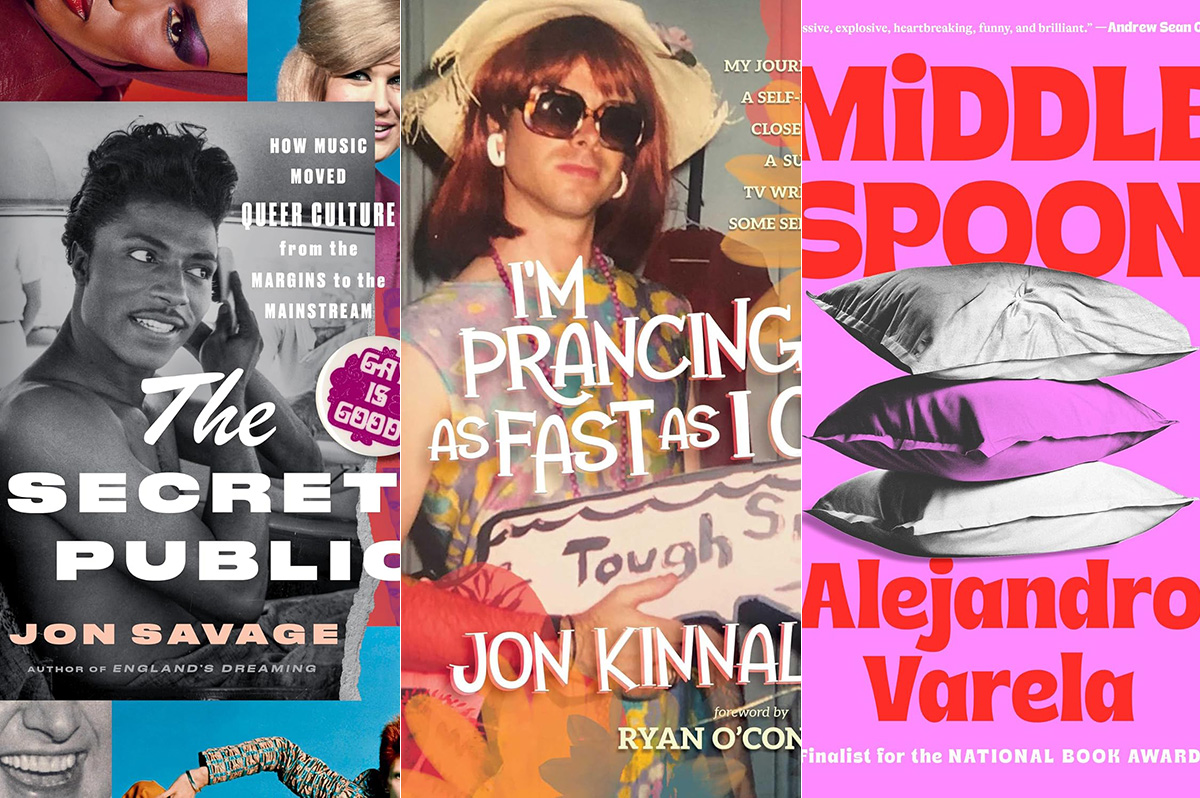
Santa will be very relieved.
You’ve taken most of the burden off him by making a list and checking it twice on his behalf. The gift-buying in your house is almost done – except for those few people who are just so darn hard to buy for. So what do you give to the person who has (almost) everything? You give them a good book, like maybe one of these.
Memoir and biography
The person who loves digging into a multi-level memoir will be happy unwrapping “Blessings and Disasters: A Story of Alabama” by Alexis Okeowo (Henry Holt). It’s a memoir about growing up Black in what was once practically ground zero for the Confederacy. It’s about inequality, it busts stereotypes, and yet it still oozes love of place. You can’t go wrong if you wrap it up with “Queen Mother: Black Nationalism, Reparations, and the Untold Story of Audley Moore” by Ashley D. Farmer (Pantheon). It’s a chunky book with a memoir with meaning and plenty of thought.
For the giftee on your list who loves to laugh, wrap up “In My Remaining Years” by Jean Grae (Flatiron Books). It’s part memoir, part comedy, a look back at the late-last-century, part how-did-you-get-to-middle-age-already? and all fun. Wrap it up with “Here We Go: Lessons for Living Fearlessly from Two Traveling Nanas” by Eleanor Hamby and Dr. Sandra Hazellip with Elisa Petrini (Viking). It’s about the adventures of two 80-something best friends who seize life by the horns – something your giftee should do, too.
If there’ll be someone at your holiday table who’s finally coming home this year, wrap up “How I Found Myself in the Midwest” by Steve Grove (Simon & Schuster). It’s the story of a Silicon Valley worker who gives up his job and moves with his family to Minnesota, which was once home to him. That was around the time the pandemic hit, George Floyd was murdered, and life in general had been thrown into chaos. How does someone reconcile what was with what is now? Pair it with “Homestand: Small Town Baseball and the Fight for the Soul of America” by Will Bardenwerper (Doubleday). It’s set in New York and but isn’t that small-town feel universal, no matter where it comes from?
Won’t the adventurer on your list be happy when they unwrap “I Live Underwater” by Max Gene Nohl (University of Wisconsin Press)? They will, when they realize that this book is by a former deep-sea diver, treasure hunter, and all-around daredevil who changed the way we look for things under water. Nohl died more than 60 years ago, but his never-before-published memoir is fresh and relevant and will be a fun read for the right person.
If celeb bios are your giftee’s thing, then look for “The Luckiest” by Kelly Cervantes (BenBella Books). It’s the Midwest-to-New-York-City story of an actress and her life, her marriage, and what she did when tragedy hit. Filled with grace, it’s a winner.
Your music lover won’t want to open any other gifts if you give “Only God Can Judge Me: The Many Lives of Tupac Shakur” by Jeff Pearlman (Mariner Books). It’s the story of the life, death, and everything in-between about this iconic performer, including the mythology that he left behind. Has it been three decades since Tupac died? It has, but your music lover never forgets. Wrap it up with “Point Blank (Quick Studies)” by Bob Dylan, text by Eddie Gorodetsky, Lucy Sante, and Jackie Hamilton (Simon & Schuster), a book of Dylan’s drawings and artwork. This is a very nice coffee-table size book that will be absolutely perfect for fans of the great singer and for folks who love art.
For the giftee who’s concerned with their fellow man, “The Lost and the Found: A True Story of Homelessness, Found Family and Second Chances” by Kevin Fagan (One Signal / Atria) may be the book to give. It’s a story of two “unhoused” people in San Francisco, one of the country’s wealthiest cities, and their struggles. There’s hope in this book, but also trouble and your giftee will love it.
For the person on your list who suffered loss this year, give “Pine Melody” by Stacey Meadows (Independently Published), a memoir of loss, grief, and healing while remembering the person gone.
LGBTQ fiction
For the mystery lover who wants something different, try “Crime Ink: Iconic,” edited by John Copenhaver and Salem West (Bywater Books), a collection of short stories inspired by “queer legends” and allies you know. Psychological thrillers, creepy crime, cozies, they’re here.
Novel lovers will want to curl up this winter with “Middle Spoon” by Alejandro Varela (Viking), a book about a man who appears to have it all, until his heart is broken and the fix for it is one he doesn’t quite understand and neither does anyone he loves.
LGBTQ studies – nonfiction
For the young man who’s struggling with issues of gender, “Before They Were Men” by Jacob Tobia (Harmony Books) might be a good gift this year. These essays on manhood in today’s world works to widen our conversations on the role politics and feminism play in understanding masculinity and how it’s time we open our minds.
If there’s someone on your gift list who had a tough growing-up (didn’t we all?), then wrap up “I’m Prancing as Fast as I Can” by Jon Kinnally (Permuted Press / Simon & Schuster). Kinnally was once an awkward kid but he grew up to be a writer for TV shows you’ll recognize. You can’t go wrong gifting a story like that. Better idea: wrap it up with “So Gay for You: Friendship, Found Family, & The Show That Started It All” by Leisha Hailey & Kate Moennig (St. Martin’s Press), a book about a little TV show that launched a BFF-ship.
Who doesn’t have a giftee who loves music? You sure do, so wrap up “The Secret Public: How Music Moved Queer Culture from the Margins to the Mainstream” by Jon Savage (Liveright). Nobody has to tell your giftee that queer folk left their mark on music, but they’ll love reading the stories in this book and knowing what they didn’t know.
The Blade may receive commissions from qualifying purchases made via this post.
Books
‘90s club kids will love Mark Ronson’s new book
‘Night People’ part esoteric hip-hop discography, part biography
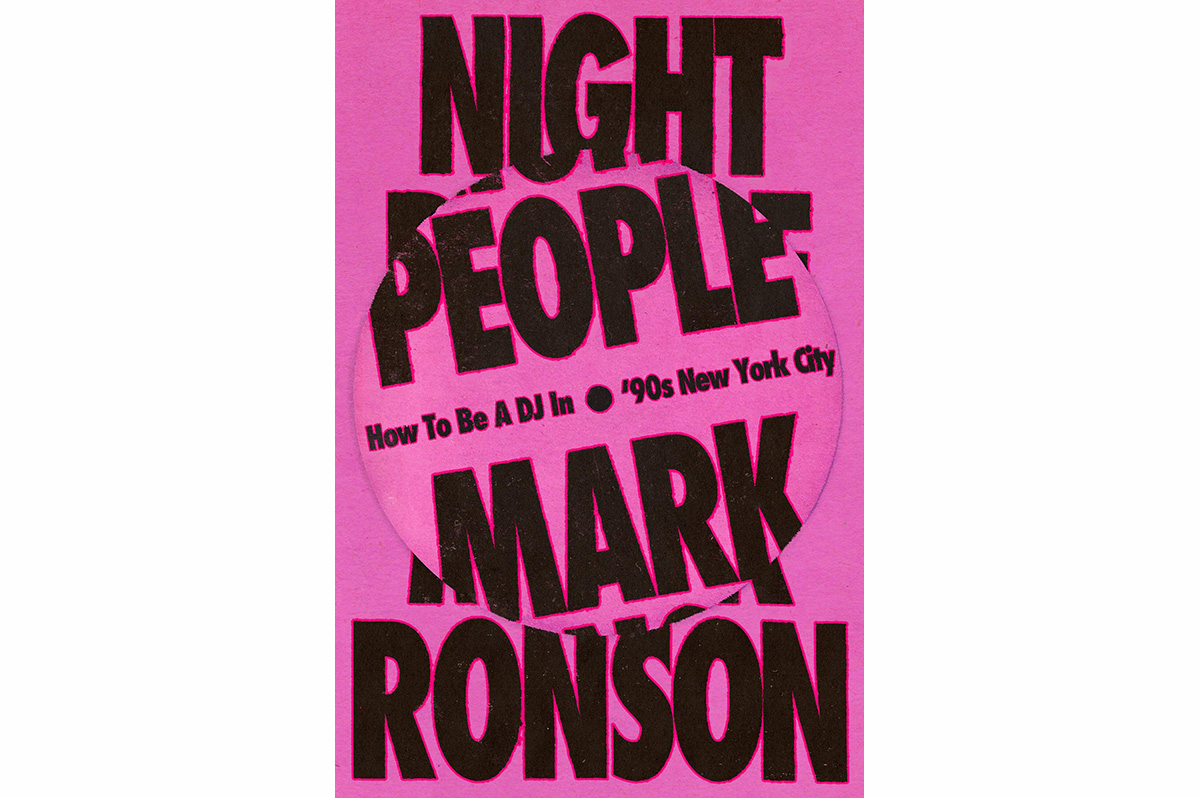
‘Night People’
By Mark Ronson
c.2025, Grand Central
$29/256 pages
You just can’t hold still.
The music starts and your hips shake, your shoulders bounce, your fingers tickle the sky to match a beat. Your air guitar is on-point, your head bops and your toes tap. You can’t help it. As in the new memoir, “Night People” by Mark Ronson, you just gotta dance.

With a mother who swanned around with rock bands, a father who founded a music publishing company, and a stepfather who founded the band, Foreigner, it was natural that Mark Ronson would fall into a music career of some sort. He says he was only 10 years old when he realized the awesome power of music.
As a pre-teen, he liked to mix music in his stepfather’s studio. As a teenager, he formed a band with Sean Lennon that didn’t quite catch on. In the fall of his senior year of high school, Ronson began sneaking into Manhattan clubs to listen to music, dance, and find drugs. It was there that he noticed the alchemy that the DJs created and he searched for someone who’d teach him how to do that, too. He became obsessed.
Finding a gig in a New York club, though, was not easy.
Ronson worked a few semi-regular nights around New York City, and at various private parties to hone his skills. His mother purchased for him the electronic equipment he needed, turntables, and amps. He befriended guys who taught him where to get music demos and what to look for at distributor offices, and he glad-handed other DJs, club owners, and music artists.
That, and the rush he got when the dance floor was packed, made the job glamorous. But sometimes, attendance was low, DJ booths were located in undesirable places, and that totally killed the vibe.
Some people, he says, are mostly day people. For others, though, sunlight is something to be endured. Nighttime is when they when they feel most alive.
Part esoteric hip-hop discography, part biography, part SNL’s Stefan, and part cultural history, “Night People” likely has a narrow audience. If you weren’t deep into clubbing back in the day, you can just stop here. If you were ages 15 to 30, 30 years ago, and you never missed club night then, keep reading. This is your book.
Author Mark Ronson talks the talk, which can be good for anyone who knows the highs of a jam-packed club and the thrill of being recognized for skills with a turntable. That can be fun, but it may also be too detailed: mixology is an extremely heavy subject here. Many of the tunes he names were hits only in the clubs and only briefly, and many of the people he name-drops are long gone. Readers may find themselves not particularly caring. Heavy sigh.
This isn’t a bad book, but it’s absolutely not for everyone. If you weren’t into clubbing, pass and you won’t miss a thing. If you were a die-hard club kid back then, though, “Night People” will make your eyes dance.
Want more? Then check out “What Doesn’t Kill Me Makes Me Weirder and Harder to Relate To” by Mary Lucia (University of Minnesota Press). It’s Lucia’s tale of being a rock DJ in Minneapolis-St. Paul, life with legions of listeners, and not being listened to by authorities for over three harrowing, terrifying years while she was stalked by a deranged fan.
The Blade may receive commissions from qualifying purchases made via this post.
Books
David Stern’s ‘Elevator Boy’ is a visceral deep dive into Weho’s queer past, but serves as inspiration for its future
In today’s political and social climate, well-told stories like Stern’s are imperative for the queer community to understand what kind of trailblazing energy we come from, and what we can do to overcome.
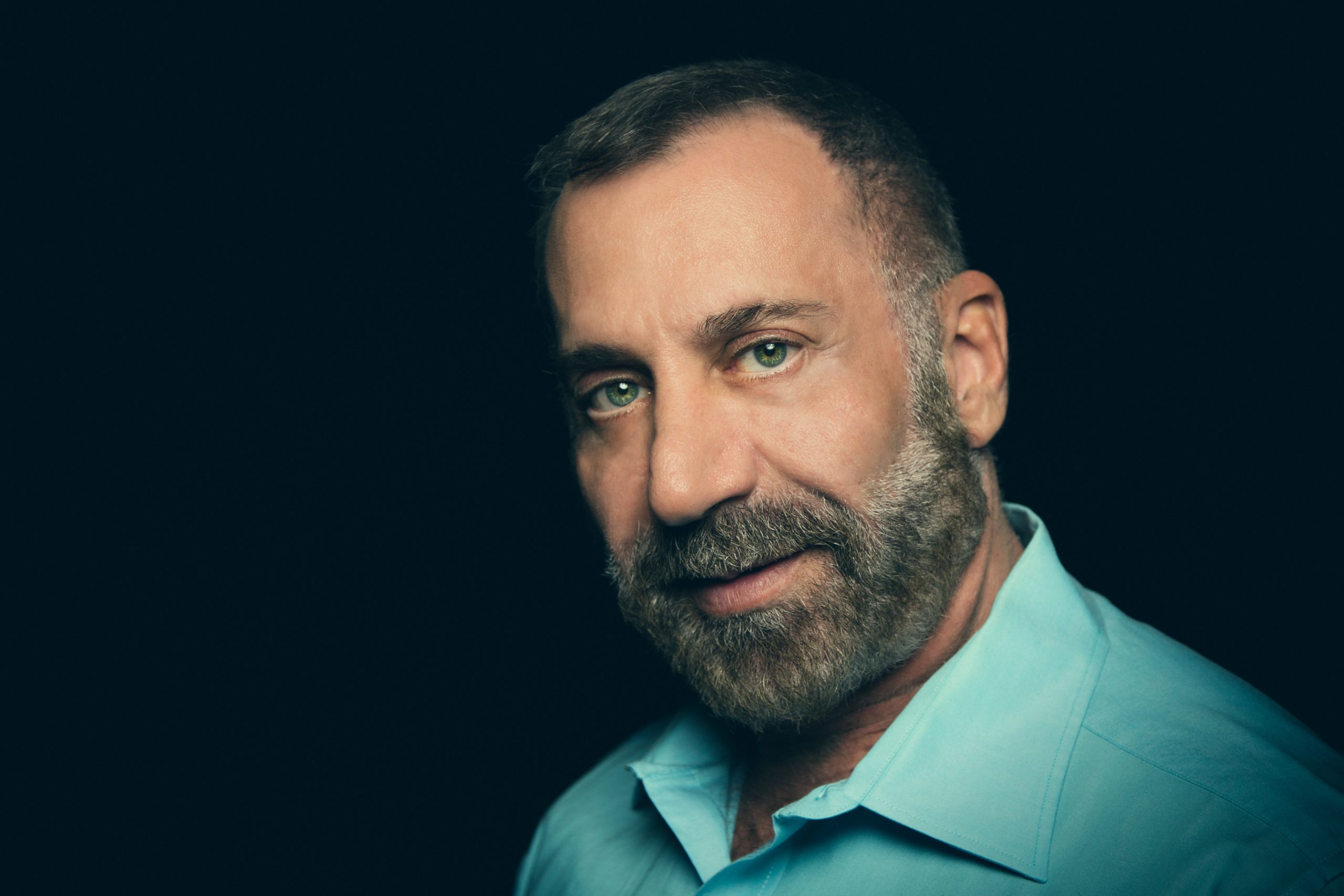
There was a time when every gay man in West Hollywood was walking around with either a copy of Frontiers or In Magazine, held tightly in hand. Not only did they feature a bevy of hot guys, but they also included queer celebrity interviews, hot topics, and a weekly photo diary of the community that every socialite thirsted to appear in. Beyond serving as queer pop culture’s pre-tech answer to social media, they were also brands that united a community that continued to lose members to the AIDS epidemic. Looking back, they weren’t just glossy magazines; they served as part of the glue that kept Los Angeles’ queer community together.
Much of the publications’ success was due to David Stern, who went from top salesperson to co-owner of both magazines. There wasn’t anyone in town who didn’t know Stern. He brought business sense and sincerity to the company and knew how to be the life of the party. He helped the magazines, and in turn, the community, thrive.
It’s hard to envision that version of David Stern as the young boy who showed up on Hollywood Boulevard, as a runaway, with literally no clothes or money to call his own. This young boy was running away from a volatile and abusive household where his sexuality served as his undoing; he was running away from the PTSD he acquired when his father fell down an elevator shaft to his death when Stern was just 15 years old. By the grace of a drag queen, perseverance, and the queer community that, when times get tough, can support its own.
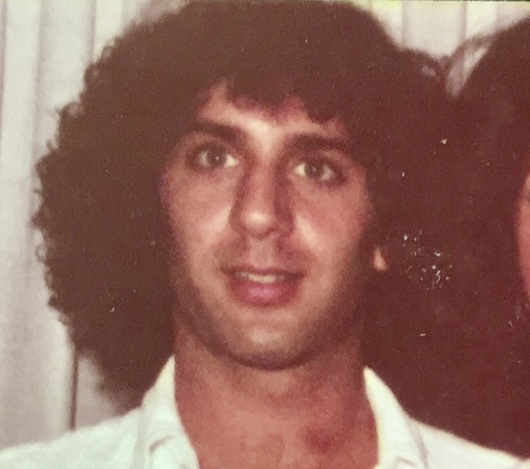
Elevator Boy, as told from an intimate and very naked point of view, tells the story of how he overcame a tumultuous past to become the man who ran a media empire. The story is not a bed of roses, and his rise to success was not without even more cuts and bruises. Stern does not shy away from the details here as he dives deep into his past. Drugs, sex, AIDS, friendship, and an unhealthy relationship with his mother all play roles in this tale.
Stern does not stop his story with his success. He is not afraid to tell the whole truth, and nothing but the truth, and shoves a spotlight into the seedy and illegal practices that were happening at his publications, unbeknownst to him. The empire was taken away from him, and eventually crumbled. Despite the challenges that Stern has faced throughout his entire life, the novel is not doom and gloom. There is a strong spirit here, a queer joy, that describes how our queer courage and perseverance will get us through. Our real family is made up of those whom we choose, who have been there for us unconditionally. This book is an inspiration. We can get through anything.
Stern started Elevator Boy over ten years ago, when he walked away from the Frontiers empire. It took that long for him to be able to face his past and put it down in words. The pain, the joy, the good, the bad, it is all here. What a moving and truly intimate life share that not only tells a compelling personal story of survival, perseverance, and hope, but also shares a slice of gay history that all generations should be exposed to.
In today’s political and social climate, well-told stories like Stern’s are imperative for the queer community to understand what kind of trailblazing energy we come from, and what we can do to overcome.
We had the opportunity to talk with Stern about it all. He did not hold back.
What was the final inspiration to tell your story?
I want to use my story to raise awareness that the rate of homelessness for LGBTQ youth is the same today as it was in the mid-70s, when I ran away from home and ended up on the streets. That rate is 120% higher than their heterosexual peers in the same age bracket.
Why is now the time and not before?
It’s been a little over a decade since my career came to an abrupt halt after 26 years of serving the community with my publications, Frontiers and IN Los Angeles magazines. Plus, I recently turned 65. If not now, when?
Your story is one of complete resilience. To what do you attribute your insistence on overcoming all your many challenges?
Thank you for acknowledging that. Since every chapter is a song title, I will refer you to it. “I Didn’t Know My Own Strength” by our dearly departed diva, Whitney Houston. (chapter 18) She sings my feelings with such passion. When I was younger, I would say, sheer defiance. As I’ve grown older, I would say that having tenacity and believing that everything happens for a reason are important. Try to learn, and in my case, re-learn the lessons from the journey.
What do you want our current younger queer generation to understand most about the era you came out in?
I would say the common thread of the teen runaways of the ’70s and the AIDS survivors of the ’80s and ’90s is how the LGBTQ community came together and took care of their own. From Sugar Love, the transgender hooker who rescued me on Hollywood Blvd at 16, to all the lesbians who stepped up to take care of their dying brothers in the face of AIDS. It was a community bonded in survival.
The AIDS epidemic plays a big part in your life. What comes to mind when reflecting on that time?
Since I think lyrically, I’ll say, “I’m Still Here” in E-flat, written by Stephen Sondheim. Now to be serious… AIDS taught me everything I know about life after death and how to communicate with those on the other side of the veil. It reinforced the lesson I learned the day my dad fell down the elevator shaft: life can change on a dime, and take nothing for granted.
It must have been bittersweet visiting your past. How did you mentally get through the writing process and rehashing difficult parts of your life?
This was a ten-year writing process. It started with me being so depressed that I couldn’t function. I’d morphed back into feeling like a worthless, homeless teen instead of a successful publisher. I began writing about that time period, which is the first chapter of my book, Hollywood Nights. From there, I wrote down songs that gave me a sense of memory, and I listened to them as I danced around my house, remembering while I laughed and cried at the absurdity of my life.
I will say that writing what became the second and third chapters of the book about my attempt at suicide sent me into two years of EMDR therapy to help with processing the memories. PTSD has created some interesting survival skills I was not aware I had.
Forgiveness can be difficult for many of us queer folk. Your relationship with your mother was tumultuous, to say the least. How did you get to a point of forgiveness, and why was that so important?
I think a bigger question is, how did my mother get to a point of forgiveness with me? I caused her so much grief when I was growing up. When I got sober at age 27 and turned my life around, our relationship had room to grow into a beautiful friendship because I was showing up as a functioning human being and not a raging drug addict.
The areas of forgiveness that have been more challenging for me are with my former business partners. I return to a very simple philosophy. I don’t know what life lessons they were meant to learn through our shared experience. I can only ask, what lessons am I supposed to learn? In the end, it comes down to forgiving myself most of all.
Loss also plays a big part in your book. What is your message to those who have dealt with great loss in the queer community?
Everybody grieves differently. Be kind and gentle with yourself and others. I can feel the presence from the other side; some can’t or don’t believe that. To them, I say, find comfort in remembering their smile, the quirky things done by the departed that make you laugh, and cherish the time you had.
Was it hard to leave West Hollywood and start a new chapter of your life?
Surprisingly, no. My husband and I met in Palm Springs nearly 20 years ago, so moving to the “scene of the crime” was a beautiful full-circle moment for us.
What do you miss most about West Hollywood of yesteryear?
My own youth. A thriving print media with trusted journalists on the ground vetting and telling our stories, and the infamous West Hollywood Athletic Club.
What is the mission of your book?
To bring hope, uplift, and heal, while preserving an era of LGBTQ history.
What do you want audiences to walk away with most?
If I can overcome all the obstacles in my life, you can rise above yours, too!
You also dive into a controversial and tumultuous time in queer print media in SoCal. You catalog your rise and fall in the industry and the corruption that took place. Why was it so important to come out and tell the story?
There is an effort underway to erase our history. I have always provided platforms for the voices of the LGBTQ+ community. We will not be erased. I will not be erased. Our history is important, so I’m setting the record straight. Frontiers Media was a pioneer for the LGBTQ community. I am just walking in my shoes again. Pioneering the power of LGBTQ+ voices, and that voice starts with me.
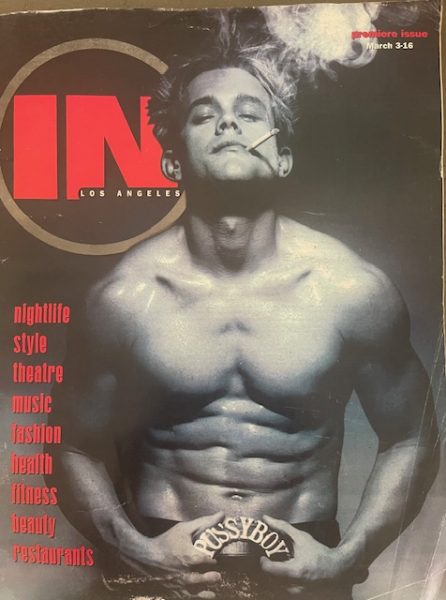
You saw the evolution of queer media and were a part of it. What is your current take on queer media – what is it getting right, what is it missing?
Regarding queer media, I’ve been out of the loop for a decade, but I will share my thoughts on the state of media in general. The following is the Preface of my book:
TODAY, AMERICA IS FACING A MEDIA CRISIS. It began in the 1980s when AIDS, ignored by the mainstream press and government, was raging on. Congress eliminated the Fairness Doctrine that opened a Pandora’s box, allowing the news media to turn into a tool for brainwashing. A functional, modern society needs courageous, trusted journalists on the ground to verify stories and report facts. Trusted news sources are shrinking as the media landscape becomes increasingly fragmented. Future generations will be trapped in this tower of babble, never distinguishing fact from fiction as the hope for freedom and justice fades. Society must find its way back to the earnest quest for truth. In the mid-1970s, at age sixteen, tragedy, fear, denial, and wild abandon turned my world upside down. I ran away from the newly developing suburbs of St. Louis. The parks and back alleys of the U.S. were home to over a million runaway youths. Sexual liberation defined the era. Compared to their heterosexual peers, the homelessness rate among LGBTQ+ youth was 120% higher. This ratio remains unchanged today. Elevator Boy is set in a time when news didn’t drown in the chaos of alternative facts, and meaningless opinions weren’t passed off as truth. Our anti-hero struggles with PTSD from childhood trauma, while society suffers from the same ailment caused by electronic information overload. Sound bites disguised as news are short-circuiting the system. Recognizing the illness is half the battle. Let the healing begin.
How does it feel to now have your life completely out in the open? There’s no going back.
It is completely freeing and healing.
What is your message to the younger queer generation?
Be kind to each other, and remember that Snapchat, TikTok, Instagram, or whatever, are not news sources. Learn how to vet facts.
David is currently working on his next book, a volume of poetry titled “The World of Rhyme and Reason.”
Elevator Boy – An Otherworldly Memoir is available on Amazon, Barnes & Noble, or wherever books are sold.
Books
New book highlights long history of LGBTQ oppression
‘Queer Enlightenments’ a reminder that inequality is nothing new
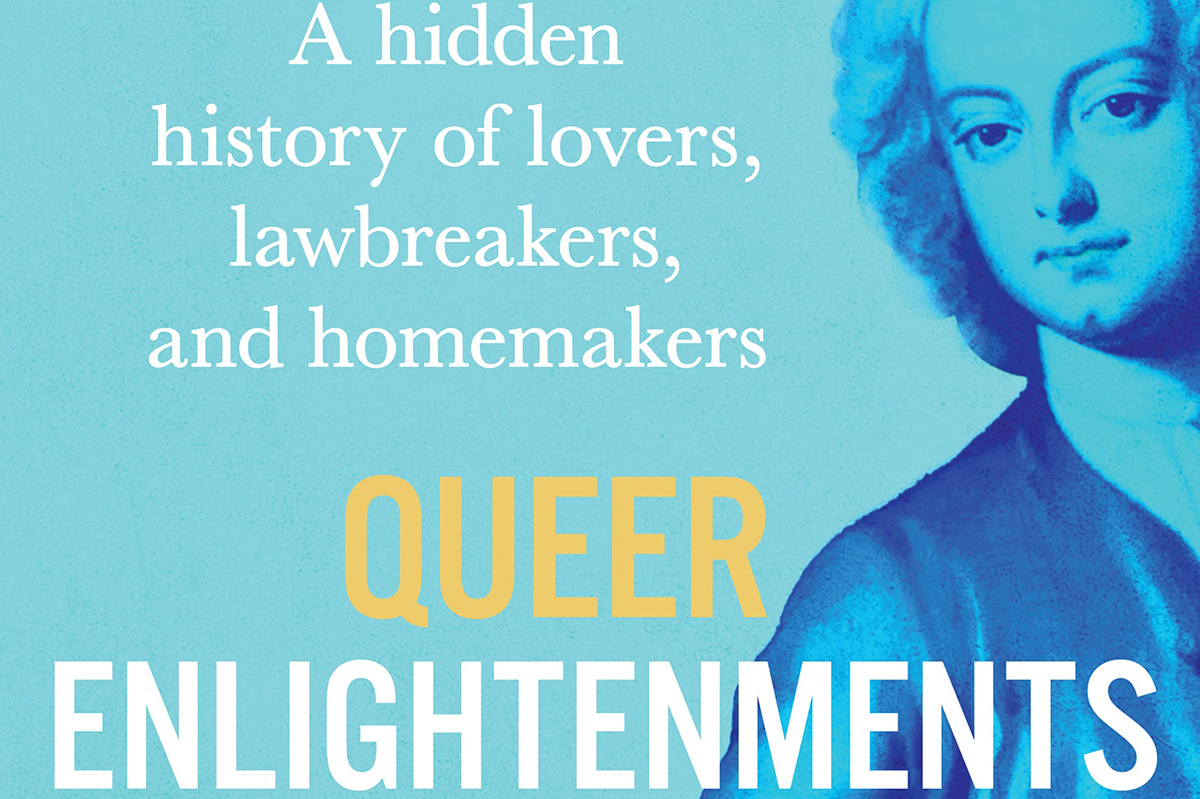
‘Queer Enlightenments: A Hidden History of Lovers, Lawbreakers, and Homemakers’
By Anthony Delaney
c.2025, Atlantic Monthly Press
$30/352 pages
It had to start somewhere.
The discrimination, the persecution, the inequality, it had a launching point. Can you put your finger on that date? Was it DADT, the 1950s scare, the Kinsey report? Certainly not Stonewall, or the Marriage Act, so where did it come from? In “Queer Enlightenments: A Hidden History of Lovers, Lawbreakers, and Homemakers” by Anthony Delaney, the story of queer oppression goes back so much farther.

The first recorded instance of the word “homosexual” arrived loudly in the spring of 1868: Hungarian journalist Károly Mária Kerthbeny wrote a letter to German activist Karl Heinrich Ulrichs referring to “same-sex-attracted men” with that new term. Many people believe that this was the “invention” of homosexuality, but Delaney begs to differ.
“Queer histories run much deeper than this…” he says.
Take, for instance, the delightfully named Mrs. Clap, who ran a “House” in London in which men often met other men for “marriage.” On a February night in 1726, Mrs. Clap’s House was raided and 40 men were taken to jail, where they were put in filthy, dank confines until the courts could get to them. One of the men was ultimately hanged for the crime of sodomy. Mrs. Clap was pilloried, and then disappeared from history.
William Pulteney had a duel with John, Lord Hervey, over insults flung at the latter man. The truth: Hervey was, in fact, openly a “sodomite.” He and his companion, Ste Fox had even set up a home together.
Adopting your lover was common in 18th century London, in order to make him a legal heir. In about 1769, rumors spread that the lovely female spy, the Chevalier d’Éon, was actually Charles d’Éon de Beaumont, a man who had been dressing in feminine attire for much longer than his espionage career. Anne Lister’s masculine demeanor often left her an “outcast.” And as George Wilson brought his bride to North American in 1821, he confessed to loving men, thus becoming North America’s first official “female husband.”
Sometimes, history can be quite dry. So can author Anthony Delaney’s wit. Together, though, they work well inside “Queer Enlightenments.”
Undoubtedly, you well know that inequality and persecution aren’t new things – which Delaney underscores here – and queer ancestors faced them head-on, just as people do today. The twist, in this often-chilling narrative, is that punishments levied on 18th- and 19th-century queer folk was harsher and Delaney doesn’t soften those accounts for readers. Read this book, and you’re platform-side at a hanging, in jail with an ally, at a duel with a complicated basis, embedded in a King’s court, and on a ship with a man whose new wife generously ignored his secret. Most of these tales are set in Great Britain and Europe, but North America features some, and Delaney wraps up thing nicely for today’s relevance.
While there’s some amusing side-eyeing in this book, “Queer Enlightenments” is a bit on the heavy side, so give yourself time with it. Pick it up, though, and you’ll love it til the end.
The Blade may receive commissions from qualifying purchases made via this post.
Arts & Entertainment
Los Angeles’ renowned poet Steven Reigns releases his most intimate work yet with his memorial memoir ‘Outliving Michael’
Reigns celebrates the life of his friend, Michael Church, who died of AIDS in 2000, through this intimate and heartbreaking revisit of their relationship through the power of poetry.
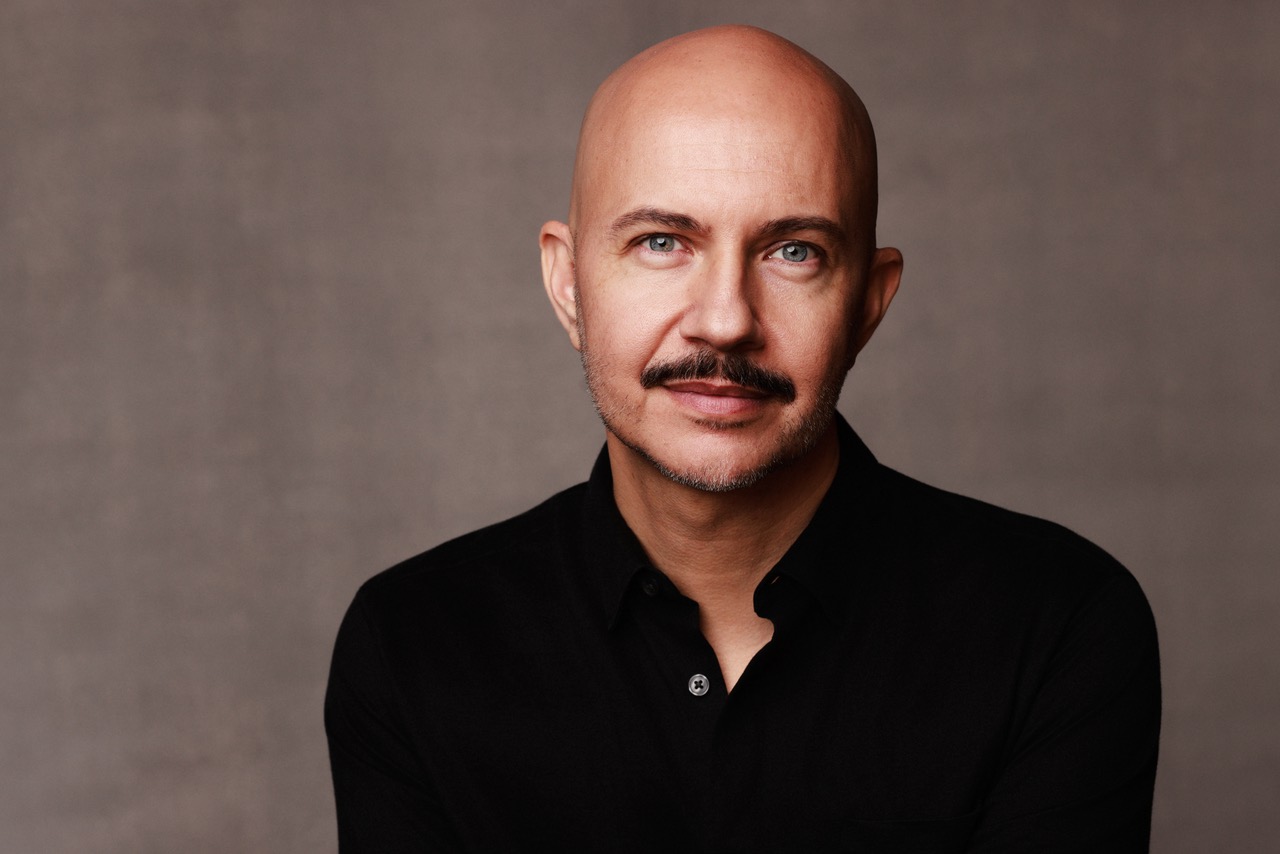
Steven Reigns has been a leader in the world of queer poetry for some time, particularly in Southern California. Reigns served as the first Poet Laureate of West Hollywood and is a nineteen-time recipient of the Los Angeles County Department of Cultural Affairs’ Artist in Residence Grant. He has released a number of works and collections, including A Quilt for David, the result of over ten years of researching the life of David Acer. He curated My Life Is Poetry, spotlighting works from the first-ever autobiographical poetry workshop for LGBT seniors. He continues to inspire through his workshops throughout the nation, catering to LGBTQ youth and those living with HIV.
His hot-off-the-press recent work, Outliving Michael, is perhaps his most naked piece, turning the lens inward and recounting his intimate friendship with Michael Church, bumps and all. Using the power of poetry, Reigns’ work is a roller coaster of emotions and does not shy away from the details. It is heartbreaking, it is raw, it is funny, it is inspirational, and ultimately is a tale of resilience and friendship, despite the odds. Outliving Michael also serves as a glimpse, from a first-hand perspective, of the AIDS epidemic and what it was like to be a queer youth during the 1990s. Church passed away from AIDS in 2000. Twenty-five years later, Reigns returns to this friendship as if it just happened yesterday. The past and present come together under Reigns’ pen, and the result is a powerful kick to the stomach, an important statement of how strong the queer community is and how the past isn’t really that far away. Regardless of whether you are a reader of poetry, this should be required reading for any queer person.
Not only do we get to know Church in this piece, and what an important, essential, and vibrant part of Reigns’ life he was, we also get to know Steven, in a more intimate way than we have seen, as he strips down and reveals aspects of his youth, his journey, and his identity, not shying away from the difficult parts. It is a story of friendship that reads as universal. It is a story of a friendship that thrived regardless of a generation gap. We should all be so lucky to have a Church in our lives. Even though Outliving Michael deals with death, it is also a celebration of the queer joy we can find in our community, regardless of what we are going through politically and socially. We will join hands and will overcome.
We caught up with Reigns on the heels of his book release party at West Hollywood’s Book Soup and in anticipation of the LGBTQ+ Book Club at the West Hollywood Library discussion taking place at the West Hollywood Library Community Room on Tuesday, October 28th at 6 pm. Reigns talked to us about his relationship with Michael, the power of poetry, and how the book comes at a timely moment.
What was it about Michael that you instantly gravitated towards when first meeting him?
I heard about Michael before I met him. His drag name was Blanche, and it seemed like most stories about gay life and definitely drag life in Naples invoked his name. So there was a buzz about him, and he was mythic to me before we even met.
What did Michael teach you most about life and yourself?
The first time we met up outside of a group was to have drinks at a bar. I had a fake ID, and we drank White Russians, his drink of choice. At some point in the conversation, he said to me, “You’re cute. Make sure you can always back it up,” and proceeded to talk about how young gay men ride on their looks, avoid cultivating interests, or avoid being interesting. I was self-assured enough to chuckle at his comment and reply, “I can.” I had been around enough to know what he was referencing. Even with such a sharp comment, I saw it as insightful, bold, and quite caring, even though he didn’t know me that well. It was a warning of what he had seen happen at the bars with younger guys for years. Though he was known for his wit and sharpness, I felt safe with him.
What do you want the younger queer generation to understand the most about the AIDS epidemic period?
AIDS itself is a horrifying disease. The fact that it greatly impacted communities thought of as lesser (homosexuals, IV drug users) meant a slow government and community response. There was so much silence and silencing. The pandemic of AIDS was around for six years before the President addressed it in a speech. There was the belief that the right people were dying and not deserving of help. Gay men and those who loved them were experiencing great personal loss and no governmental acknowledgement, funding, or support. A friend of mine had 14 friends die during one summer. That’s how quickly things were happening. Imagine randomly deleting 14 friends in your address book. The queer communities’ response was impressive in fighting back and demanding care and consideration. That kind of mobilizing and organizing is important for us to think of as we move into a future where our community members are under attack.
You were very young in dealing with Michael’s illness and that loss. Looking back, how would you have handled things differently? Any words of advice for queer youth having to deal with the illness of a loved one?
So many people have a story like mine. Generally, they are older. Because of my fake ID, I was socializing with men older than me, and so I was exposed to more AIDS losses than most men my age. This book is not a hagiography of Michael, but it also doesn’t dwell on his faults or my own. I didn’t feel like those stories were necessary to tell this story of friendship, loss, growth, and survival. So, I didn’t tell the ways in which I was a terrible caregiver. I was young and later learned so much more about how to care for the sick and dying. Also, Michael didn’t want me to take care of him. What he really wanted was his independence and privacy. He had dementia in the end. It created this slower, gradual loss, and I wonder if it, in some odd way, made the final loss of Michael easier. He left in bits and pieces.
You have been integral in working within circles with those affected by HIV/AIDS. What inspired you to get so involved, besides losing Michael?
I am forever grateful for having Martha Roper as a sex education teacher in St Louis, Missouri. She taught sex without shame, euphemisms, or obscurifications. She was direct, and that’s what was needed then. I learned so much, not only about HIV transmission but about sexual communication and dynamics. That education helped me navigate through the adult world of sex when I wasn’t fully an adult but sought out such experiences. After Michael died, I worked in the HIV field, educating, testing, and counseling thousands of people about transmission. Friends were concerned at how I threw myself into that job, but I likened it to a hurricane, in that the calmest part was being in the center of the storm.
This is not your typical memoir, being told through poetry. How is sharing Michael’s life most effective in this format? How does telling it in poetry add to the story?
Poetry is the language of our emotions, and so telling such an emotional story, it seemed poetry was the perfect medium to do that. I’m also writing about events that were 25 years ago, poetry can allow jumps in time, omissions of details, and yet still hold the emotional truth of an experience.
This book is easily accessible to readers who are not used to reading poetry. How did you make it so accessible while still presenting complex and beautifully layered poetry?
I’m flattered you think so. I think with most things in the arts, the real skill is to have the labor of the final product be invisible. It’s hard to convey complexity simply. That’s what poetry can demand of the poet. My poetry style is straightforward. I’m not interested in poetry as a riddle or rhyme. I want readers to feel something, learn something, and gain a different perceptive.
What do you want readers to walk away with most after reading this book?
This book moves beyond just my experience; it taps into our universal feelings of loss and grief. I want readers to learn about Michael, about what it was like being gay men in the 90s, but also for them to reflect on their own friendships, mentors, and the impact that friends have on our lives. My life was enriched and changed by Michael, and I devoted years to writing about this. I think most of us feel like our friends, those family members of choice, are worthy of such effort and dedication. I’m pleased I did this for Michael and hope it inspires others to tell their stories about their loved ones.
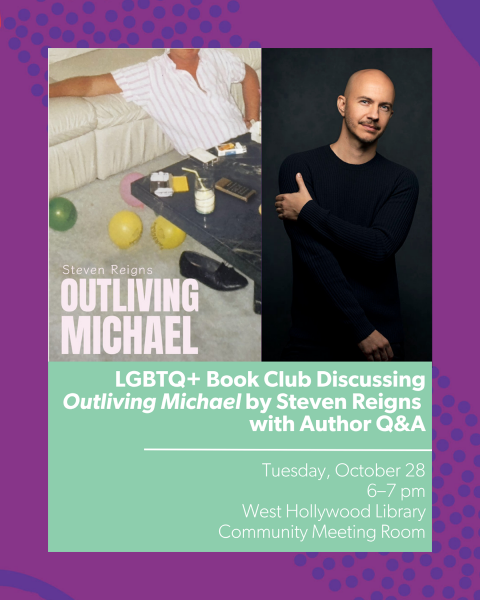
Books
Florida’s war on Black, queer lives hidden no more
New book ‘American Scare’ exposes truth of decades of erasure, attacks
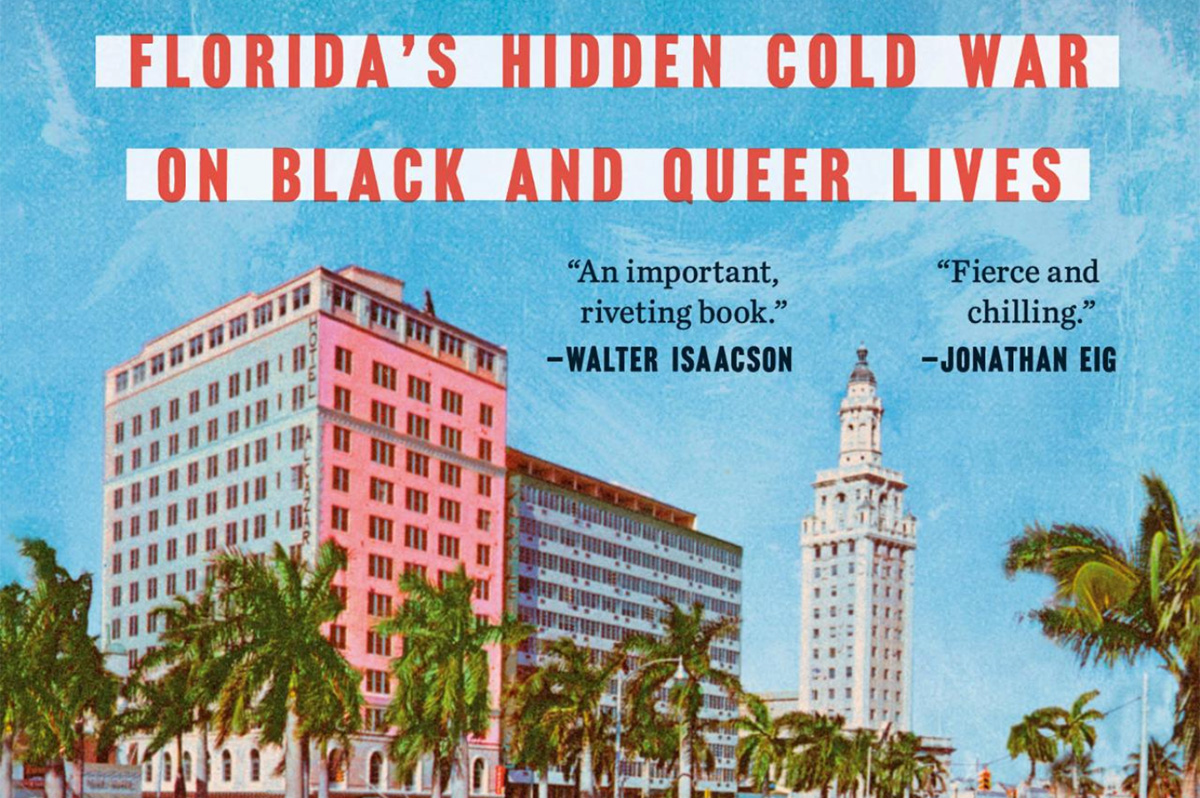
‘American Scare: Florida’s Hidden Cold War on Black and Queer Lives’
By Robert W. Fieseler
“What’s with Florida?,” Bobby Fieseler, disgusted, asked after completing his initial research into the vicious investigation of suspected homosexual teachers by the Florida Legislative Investigation Committee (FLIC) in the 1950s. How did the official animus toward all things queer happen in Florida, Fieseler pitched his publisher. We can be grateful Dutton gave him the green light for “American Scare, Florida’s Hidden Cold War on Black and Queer Lives.”

Fieseler’s book is a masterpiece of archive activism that begins in a rental van escaping Florida with some 20 boxes of historical documents meant to be seen by no one. The cartons contained a secret second copy of materials that had been held back from the jaws of the Florida State Archives in Tallahassee. Soon, more folders would surface with unredacted materials. “There are friends of Dorothy in any system,” he explains his archival detective work with a wink.
What’s with Florida? In the 1950s, it was all about legislators exposing politically helpless homosexuals to justify the committee’s investigations and budgets. The FLIC documents reveal the names of the accused “perverts,” the cops who raided the restrooms, the terrified queer informants and the professional interview techniques that would extract confessions from the victims. On another level, this was about old-school Southern racists determined to stop integration at all costs with intention to weave lies about Communist infiltration of the NAACP. Finally, Fieseler encountered first-hand an official determination to erase and lock-up this history. The statewide obsession with erasing history continues to this day. The Florida Department of Transportation this year painted over the community rainbow crosswalk memorial to the Pulse nightclub massacre victims in Orlando.
“American Scare” is such a fully documented investigation of what unfolded, it will be impossible to paint over the magnitude of this assault. The book bears witness in gory detail to the ruination of private people that exceeds in pure perniciousness the more famous “Lavender Scare.” Although the “Lavender Scare” purged many more individuals, it was about the U.S. Department of State firing public officials slimed as “pinstripe twerps.” The Florida investigations were a statewide purge using a dark politics of exposure of schoolteachers leading private lives. Fieseler quotes Remus Strickland, the head homo-hunter and executive director of the Southern Association of Intelligence Agents formed in response to the Supreme Court’s Brown v. Board of Education desegregation decision (1954), “If the Committee’s first pursuit (race and Communism) was a mandate, its second pursuit (homosexuals) was an opportunity.” Remus (that’s really this Southerner’s name) explained years later without remorse, “We first looked at the University of Florida for Communists….then we came back and did the homosexual purge.” Fieseler’s archival research reveals how far-right politicians and investigators like Strickland characterized Communists, African Americans (through the NAACP) and homosexuals as aligned “treasonously in a subversive societal infestation.”
The whole show was the creation of a wily, populist politician — a Florida “Pork Chopper” — Charley Johns, president of the Florida Senate. “Pork Choppers,” the rural, white Northern Florida wing of the old Democratic Party, controlled the state legislature from the 1930s to the 1960s. They were strongly opposed to integration, Communists, homosexuals, reapportionment and government reform. Johns owned the Charley E. Johns Insurance Agency, which insured state agencies. Fieseler’s history brings these North Florida politicians into grotesque focus. Their “power had lynched history,” he writes about his passion to excavate how they sealed and redacted the records so they would never face responsibility for their actions.
“American Scare” reveals how these Pork Choppers were willing to crush homosexuals as an instrument to maintain power. Their victims were isolated gay and lesbian teachers who could only plead for mercy, vanish or inform on one another. They were entrapped by the system itself. Fieseler tells the story of how Remus Strickland pulled Miss Poston, a physical education teacher out of her classroom surprising her with a tape recorder and a request to give a misdirecting statement about the prevention of child molestation. Suddenly Remus changed the subject: “Miss Poston, in your acts with Miss Bradshaw whom you referred to on this record, would she play the part of the aggressor…..She was known as the butch is that true?….Was there any occasion of any oral copulation?” He closed in for the kill, “Could there have been more than one time”? Miss Poston caved, “Possibly but if so only one more time.” The reel-to-reel tape is turning.
Concert pianist and music teacher William James Neal received the same taped grilling. Remus begins the interview, “You’re an educated Nigra,” confronting Neal with testimony he was a homosexual “nigra.” Years later, Neal remembered, “He told me I would never teach within the continental limits of the United States. He said he had proof I was a homosexual.” An African-American concert pianist, Neal had extensively toured the U.S. playing with major orchestras and hosting his own radio program in Florida. Neal had the self-respect and courage to take his illegal termination to the Florida Supreme Court. In 1962, the court ruled in his favor (Neal v. Bryant) handing Remus Strickland a devastating defeat, writing “The statements accused teachers allegedly made were obviously extracted under a threat of publicity.” Vindicated, William Neal nonetheless left Florida never to return.
There have been resolutions for an acknowledgment and apology. None have advanced through the Republican-controlled legislature occupied with a slew of “Don’t Say Gay” bills. “American Scare’ is larger than a small-bore history of investigations. It is the story of a Great Florida Teacher’s Purge launched to stop integration. Fieseler is done with redactions. He names names. If there is anything redemptive in this Southern hot mess, it is this: Bobby Fieseler, a queer historian, rescued the boxes and delivers readers their contents with history’s gale force.
The Blade may receive commissions from qualifying purchases made via this post.






